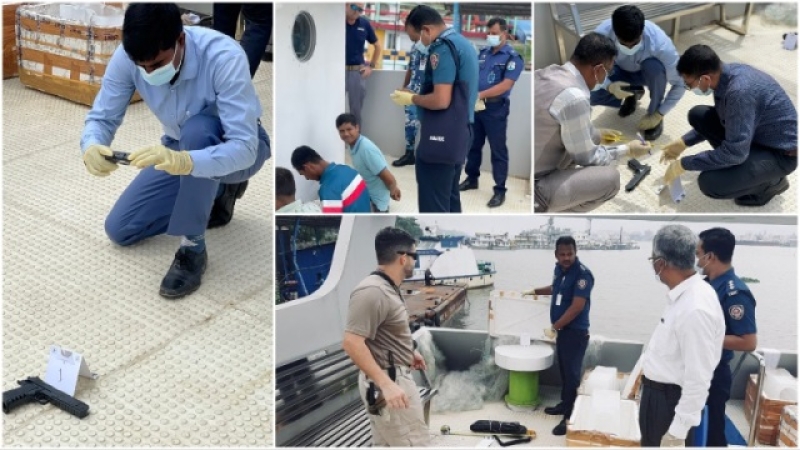- Bangladesh stocks end week higher on upbeat mood |
- BDR name will be restored, army won't be used for politics: Tarique |
- Hili land port highway upgrade delayed again, cost Tk 588cr up |
- Tarique vows quick execution of Teesta Master Plan if elected |
- How Undecided voters May Decide the Election |
Bangladesh sees spike in crimes amid political shift

The surge in criminal activities across the country raising significant concerns among people
Dhaka, Jan 10 — The sudden political transition on August 5 last year has led to a surge in criminal activities across Bangladesh, raising significant concerns among people.
Data from the Police Headquarters reveals a sharp increase in violent crimes, including murders, robberies, and kidnappings, during the four months following the regime change compared to the preceding four months.
The period of unrest was marked by widespread protests, escalating into a student-led uprising towards the end of Sheikh Hasina’s tenure.
In the aftermath, law enforcement agencies faced severe disruption, with 450 of the country’s 664 police stations attacked and several set ablaze. Many police officials, including senior officers, went into hiding, leaving citizens vulnerable.
Troubling Crime Statistics
From August 1 to November 30, 1,361 murders were reported nationwide, up from 1,158 recorded from April 1 to July 31. Robberies also rose, with 464 incidents compared to 416 in the previous four months. Similarly, dacoity cases doubled, climbing from 123 to 209. Kidnapping incidents surged from 168 to 255 during the same comparative periods.
But the incidents of burglary showed a notable decline. Local communities organised neighbourhood watches in response to the reduced police presence, resulting in 844 burglary cases and 2,424 thefts in the latter period, down from 909 and 3,068, respectively.
Experts Cite Political Instability
Experts attribute the rise in crime to the socio-political instability following the regime change. The weakened law enforcement apparatus, coupled with economic uncertainty, created an environment where criminals felt emboldened. Disruption in judicial processes further exacerbated the problem.
“The breakdown of social order in the wake of political turmoil has made it easier for criminal elements to operate unchecked,” said a criminologist at Dhaka University.
Law Enforcement Efforts
In response, the interim government has initiated measures to stabilise the police force. Increased patrols, enhanced surveillance, and community policing efforts have been introduced, particularly in urban areas with higher crime rates. Investigations targeting organised crime syndicates involved in robberies, kidnappings, and dacoities have led to several key arrests.
“We are working tirelessly to restore public confidence in law enforcement,” said a senior official from the Police Headquarters. “Coordination with other agencies and improved intelligence gathering have been prioritised to address these challenges.”
Public Concern Persists
Despite these measures, public anxiety remains high. Community leaders and advocacy groups have called for urgent reforms to address the underlying causes of rising crime. Many citizens have urged the government to prioritise public safety in policy discussions, emphasising the need for long-term social and economic reforms alongside robust policing.
Broader Implications
According to retired police officials, the recent crime wave highlights the vulnerabilities that emerge during periods of political transition. While immediate steps are being taken to curb criminal activities, the broader challenges of socio-political instability and economic insecurity require sustained attention, they said.
They stressed the need for a comprehensive approach blending law enforcement, judicial efficiency, and social reforms will be essential to restore stability and ensure the safety of all citizens.-UNB

